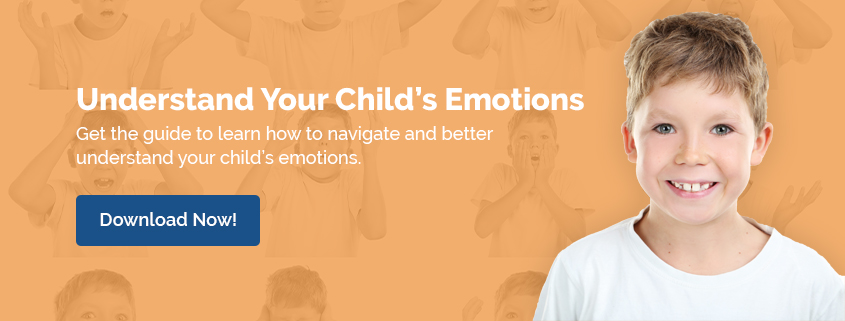Understanding and Explaining Mental Health To A Child: Know the Signs & How To Help
Mental health is just as important as physical health. Let’s repeat that together; mental health is just as important as physical health!
Now more than ever, parents and caregivers need to talk to their children about what it means to have good mental health. Mental illness is a serious condition that affects mood, thinking, and behavior. It can make it hard to do everyday tasks and enjoy life. So, how do you maintain an open line of communication with your kids? Here are some ways to get the conversation started when it comes to explaining the importance of mental health to your child.
What Is Mental Health?
Good mental health isn’t just the lack of a mental illness. Mental health affects your overall well-being, including emotional, social, and psychological states. It affects how you think, feel, and act.
Someone with good mental health handles stress from daily life in a healthy, productive way, while individuals who struggle with mental health do not.
Mental health can be especially hard to understand for young children. Early childhood experiences are the basis of child development and play an important role in the development (or lack) of mental health problems in adulthood.
What Affects Your Mental Health
There are many factors, both internal and external, that affect children’s mental health. And, as with any illness, genetics predispose a person to a mental disorder; having a family member with a mental illness increases your risk.
However, environment also plays a role; stress, trauma, socioeconomic status, and relationships are all factors that influence a person’s mental health. For young people, there are a lot of social factors that increase the chances of developing mental health problems. Social media sites connect people of all ages but lead to adolescents often comparing themselves to others. Experiencing a traumatic event can play a significant role in developing post-traumatic stress disorder.
Additionally, school work can cause anxiety or lack of sleep, increasing the risk of deteriorating mental health. This can lead to older children trying to find ways to cope with the stress, increasing the likelihood of them experimenting with drugs or alcohol.
It’s important to talk with your child about ways to relieve stress, including self-care habits like healthy eating, regular exercise, steady sleeping patterns, and more. Stress affects everyone differently, so stress relief can take many different forms, depending on likes and interests.
How Common Are Children’s Mental Health Problems?
Unfortunately, about 50% of adolescents have reported having a mental disorder at some point in their lives (22% having a severe impairment), according to the National Institute of Mental Health. No singular mental illness affects only children, but some are more common than others.
Common Child Mental Disorders
-
- Anxiety Disorders
- Depression
- Attention-Deficit/Hyperactivity Disorder (ADHD)
- Eating Disorders
- Substance Abuse
Unfortunately, it is very common for children to experience poor mental health. So, if your child needs help, it may be best to reach out to a mental health care professional.
Warning Signs and Symptoms
Mental health problems affect children in many different ways. Some symptoms may be obvious to parents, but others may not be. It’s easier for a child to hide their emotions compared to a physical illness — but that doesn’t make their mental health issues any less serious.
For your child to get the help they need, be familiar with some of the more common signs of mental health issues in kids. If you notice any of these, talk to your pediatrician or another mental health professional right away:
Warning Signs
-
- Behavioral problems
- Mood swings
- Change in appetite
- Excessive weight gain or weight loss
- Sleeping problems
- Hostile behavior or outbursts
- Lack of energy
- Bullying
- Social withdrawal
- Poor hygiene
- Concentration issues
- Substance use
- Self-harm or thoughts of suicide
*If this is an emergency, please call 9-1-1.
Depending on your child’s age, it may be hard for them to express their emotions, especially if there is an issue. While they are learning to understand their mental health, it may be easier for them to first talk to someone like a school counselor before a parent or loved one.
Mental Health Services for Children
Treating children’s mental health issues often involves the use of counseling. In cases where their illness becomes a disability, some children may be prescribed medication as part of their treatment plan — but care should also involve some type of therapy.
Below are some of the common types of mental health services used to help young people and adolescents.
Cognitive Behavioral Therapy
Cognitive Behavioral Therapy (CBT) is one of the best therapies used to treat various mental health conditions. It helps young children and adolescents understand how their emotions affect their behavior and actions.
Support Groups
Support groups help like-minded people by sharing their mental health problems and experiences, and then providing each other with support and advice. There are many types of support groups for mental conditions, including depression, addiction, and eating disorders.
Psychotherapy
Psychotherapy, commonly referred to as “talk therapy,” involves the child meeting with a trained mental health professional (typically a certified counselor or psychologist) to work through their emotions and feelings.
Medication
In extreme cases, children may be prescribed medication to aid their mental health treatment. It’s important to remember that medication will mainly help with physical symptoms and not address the underlying mental disorder.
Psychiatry
Psychiatrists can provide more in-depth treatment than psychologists, because they are more trained in the medical aspect of the disorder. Unlike psychologists, psychiatrists can prescribe medication.
Lead By Example
Children are extremely observant. The best way to show your child how to have good mental health is through example. Demonstrate healthy ways to handle and cope with stress so your child can learn from you, which can include reaching out for help.
If you show your child the importance of taking care of mental health, they will take note of healthy coping mechanisms and how to talk through (and manage) their emotions.
Find More Mental Health Information at Meridian
Explaining mental health to a child can be difficult. But an open conversation with them about the topic is vital, because it can promote awareness of their emotions and behaviors. Now that you have some background on how to explain mental health to a child, know when to ask for help. If you or your child needs professional support coping with mental health, call Meridian HealthCare today.






